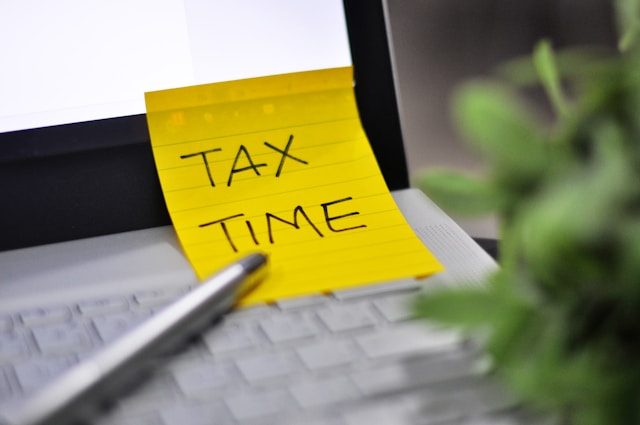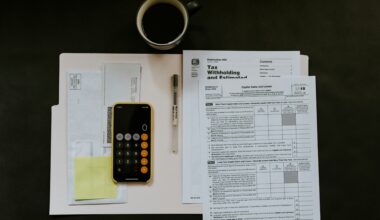Why This Nigerian Tax Rule Should Make You Sit Up
Imagine getting hit with a ₦100,000 fine—not for a business blunder or a huge audit issue, but simply for failing to file a tax return on time. That may seem extreme, but under Nigeria’s new tax administration law, such penalties are no longer hypothetical: they’re real, and they’re coming.
If you don’t act now, this surprising tax rule could drain your bank account and leave you scrambling. In this post, I’ll break down exactly what has changed, how this penalty comes into play, and the practical steps you can take to stay compliant—and avoid what could feel like a hefty surprise.
What Is This Surprising Nigerian Tax Rule?
Here’s the core of the rule: under the 2025 Nigeria Tax Administration Act, the penalty for failing to file tax returns has been drastically increased.
- The first month of non-filing now attracts a ₦100,000 fine.
- For each additional month you remain non-compliant, the fine is ₦50,000 per month.
- These are administrative penalties, not just theoretical threats—they have been codified.
This isn’t a “warning” line in small print anymore. It’s a top-level enforcement tool—and for many taxpayers, especially smaller businesses or individuals who thought they were too small to worry, it’s a real risk.
Why This Rule Matters More Than You Think
1. A Drastic Jump in Penalties
Under older rules, fines for late filing were typically much smaller:
- For companies, the old Companies Income Tax Act (CITA) imposed a ₦25,000 penalty for the first month of default, then ₦5,000 for each additional month.
- But now? That jumps to ₦100,000 for the first month.
This isn’t just a small increase—it’s a huge leap, and it changes the cost/benefit equation for many people.
2. It’s Part of a Broader Push for Enforcement
The new law is not just about this one penalty. It’s part of a comprehensive overhaul by the Nigeria Revenue Service (formerly FIRS) to enforce tax compliance more strictly.
Some of the other penalties introduced include:
- ₦50,000 for not registering with tax authorities in the first month, and ₦25,000 for each month after until registration.
- ₦100,000 for failure to notify a change of business address, plus ₦45,000 for each month after.
- Jail time in some circumstances: for non-remittance of withheld taxes, the law proposes fines, interest, and up to three years’ imprisonment. (Gatekeepers News)
It’s clear: the Nigerian government is raising the stakes, not just for big corporations, but for all taxpayers.
3. It Affects Both Individuals and Businesses
This rule isn’t just for large companies. It applies broadly to taxable persons, which includes individuals, small business owners, and self-employed professionals.
State and regional tax authorities may also enforce similar rules, so whether you’re paying federal tax or local income tax, you need to take this seriously.
How This Rule Could Literally Cost You ₦100,000 — and More
To show how this plays out, let’s walk through a few realistic scenarios.
| Scenario | What Happens | Total Penalty After 3 Months |
|---|---|---|
| Freelancer or small-business owner who misses tax return filing | First month fine: ₦100,000Each additional month: ₦50,000 | ₦200,000 |
| Sole proprietor who thinks they “don’t earn enough” to file | Same penalty structure applies if they’re obligated to file | ₦200,000 |
| Company that fails to register or file correctly | Could also attract other fines (non-registration, inaccurate returns, etc.) | Much higher, depending on offence |
Even in the simplest case, ₦100,000 is not a one-off slap. Let it drag, and you’re looking at escalating costs.
Why People Are Getting Caught Off Guard
- Lack of Awareness
Many taxpayers simply don’t know that the law has changed. Without a tax professional or regular updates, people are still operating under old assumptions. - Poor Record-Keeping
If your books are messy or you don’t have clear financial records, it’s easy to miss filing deadlines or misunderstand your obligations. - Thinking “It’s Just a Small Business”
Some individuals or micro-business owners think they’re too small to be penalized. Not anymore. The new law covers wide categories of taxable persons. - Fear or Aversion to Tax Authorities
Rather than dealing with the perceived hassle of filing, some people avoid it—only to face far worse consequences later.
Practical Steps to Avoid Getting Burned by This Rule
Here are actionable tips you can apply today to stay on the right side of this rule:
- Register for Tax (If You Haven’t Already)
- Make sure you have a Tax Identification Number (TIN).
- Ensure you are registered with the relevant tax authority (federal, state, or local) — avoid the ₦50,000/month fine.
- Know Your Filing Deadlines
- Mark your calendar for when returns are due.
- For employees who run a business or self-employed people, track personal income tax deadlines.
- If you’re a company, make sure you understand when corporate tax returns are due.
- Keep Accurate Records
- Use a simple bookkeeping system (like Excel or Google Sheets) if you’re just starting.
- Track all income sources, expenses, and documents (invoices, receipts, etc.).
- Regularly back up your records and keep them organized.
- Use E-Filing Tools
- File your returns electronically through ITAS or whichever system your tax office supports. Online filing reduces the risk of missing deadlines or losing paperwork.
- Save confirmation receipts and submission proofs.
- Talk to a Tax Professional
- A tax consultant or accountant can help you understand exactly which returns you need to file.
- They can also help set up an installment plan or help you apply for timely payment options, if allowed.
- Stay Updated
- Subscribe to updates from the Nigeria Revenue Service (NRS) or follow trusted tax news outlets.
- Laws change. Make sure you’re informed so you don’t get tripped up by new rules or future reform.
Why It’s Worth Acting Now
- Risk is Real: The ₦100,000 penalty isn’t a future threat — it’s already in the law. Waiting or ignoring won’t make it go away.
- Compound Effects: The longer you delay, the more the fine accumulates (₦50,000/month after the first month).
- Professional Image: For businesses and entrepreneurs, consistent compliance not only avoids fines but builds credibility with clients, banks, and potential investors.
- Peace of Mind: Knowing you filed correctly and on time means you avoid the stress, humiliation, or financial pain of an enforcement action.
Common Misconceptions (and Why They’re Dangerous)
Here are some myths people often believe — and the reality:
- Myth: “I don’t make much, so they won’t enforce this on me.”
Reality: The law is clear. Non-filing = penalty, regardless of revenue or size. - Myth: “If I just file a month late, they’ll ignore it.”
Reality: Not with the new regime. That first month already costs ₦100,000. - Myth: “I’ll just appeal later.”
Reality: Appeals take time and might not stop the accrual of monthly fines. - Myth: “I don’t need to register; I’m small.”
Reality: Failure to register incurs its own fine — ₦50,000 for the first month, and ₦25,000 thereafter.
Why This Rule Is a Good Reminder (Despite How Harsh It Seems)
While the penalty seems steep, there’s a silver lining: this tax rule pushes both individuals and businesses to become more financially literate and more disciplined. It forces people to:
- Take tax obligations seriously
- Keep proper records
- Be proactive about compliance
If used as a catalyst, not a threat, this penalty regime can help foster a culture of better financial management — something many Nigerians (and small-business owners) need more than ever.
Conclusion: Don’t Wait Until It’s Too Late
This new ₦100,000 penalty for non-filing is more than just a scary headline. It’s a financial risk that could hit you whether you’re a small business owner, self-employed, or simply a taxpayer who hasn’t prioritized tax compliance.
- The law is already on the books.
- The fines escalate quickly.
- The cost of inaction is real.
But here’s the good news: you can do something now. Register properly, file on time, keep your records, and stay informed. By doing that, you not only avoid the fine — you protect your financial future.
How One Extra Naira in Your Budget Could Unlock ₦500,000 Passive-Income
What Nigerian Banks Don’t Want You to Know About Taking a ₦100,000 Loan






1 comment